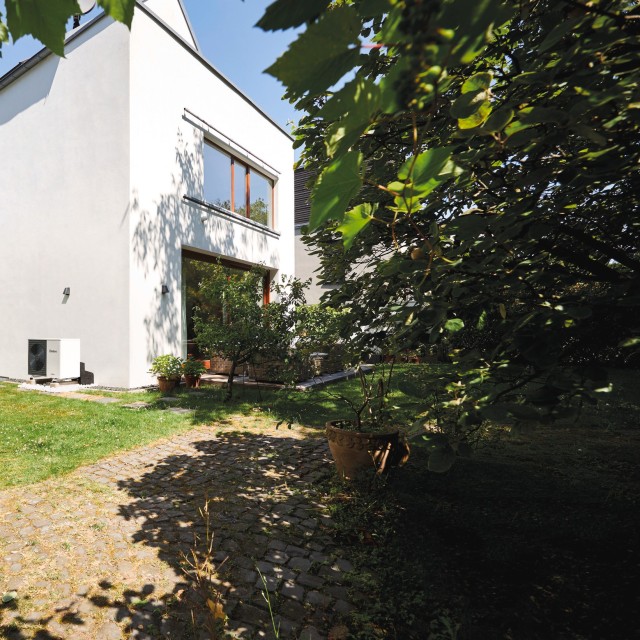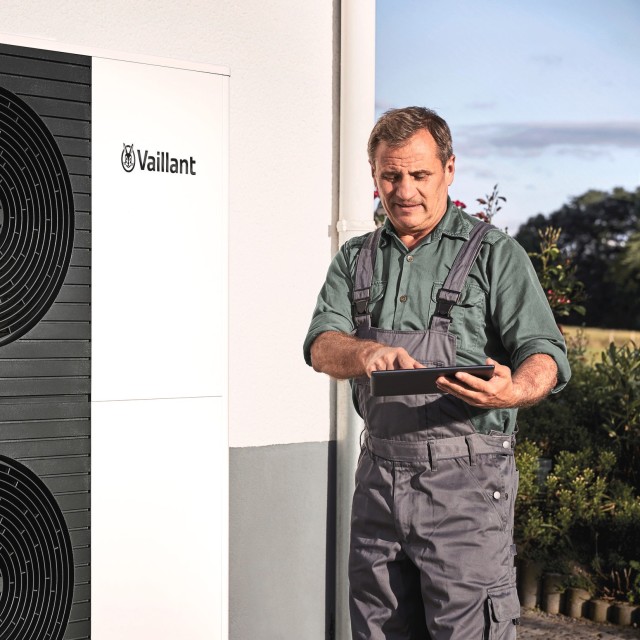Heat pumps operate at a lower flow temperature than traditional gas boilers, which means their efficiency depends on whether your radiators are correctly sized to deliver the heat your home needs. In this guide, we’ll explore when you can keep your current radiators, when you might need an upgrade, and how to maximise efficiency with your heat pump system.
Do heat pumps work with existing radiators?


How heat pumps work with radiators
Heat pumps generate heat at a lower flow temperature compared to conventional heating systems, typically around 35-55°C instead of 60-80°C from gas boilers.
Flow temperature is the temperature of the hot water that flows out of your boiler (or other heat source) and goes into your radiators or underfloor heating system.
This means radiators need to be efficient in distributing heat at these lower temperatures.
Assessing the need for heating upgrades When might you need an upgrade?
- Older or smaller radiators may struggle to emit enough heat at lower temperatures.
- Homes with poor insulation may require larger surface areas to compensate for heat loss.
- If your radiators are not performing efficiently, switching to low-temperature, high-efficiency models can improve comfort and energy savings.
Maximising efficiency: Tips for homeowners
Your local installer will determine if your radiators are the right size for a heat pump system by carrying out a full assessment of your home.
If needed, opting for low-temperature radiators can boost efficiency.
Well-insulated homes require less heating, meaning your existing radiators are more likely to work effectively.
As part of the home assessment provided when considering a heat pump, your installer will provide a report of any upgrades you may need or which could be beneficial in order to have an efficient heat pump system.
Ensuring even heat distribution across all radiators prevents cold spots and maximises performance. Follow our easy guide on how to bleed a radiator.
Modern thermostats can help optimise efficiency by adjusting the heating output based on real-time needs.
Vaillant offers a range of smart heating controls designed to boost comfort and efficiency, including the sensoCOMFORT for multi-zone and renewable systems, the sensoHOME for intuitive single-zone control, and the sensoROOM range for simple, wireless room management.
The myVAILLANT connect internet gateway and myVAILLANT app enable remote control, energy monitoring, and smart home integration, making it easy to manage your heating system anytime, from anywhere.
Your local installer will determine if your radiators are the right size for a heat pump system by carrying out a full assessment of your home.
If needed, opting for low-temperature radiators can boost efficiency.
Well-insulated homes require less heating, meaning your existing radiators are more likely to work effectively.
As part of the home assessment provided when considering a heat pump, your installer will provide a report of any upgrades you may need or which could be beneficial in order to have an efficient heat pump system.
Ensuring even heat distribution across all radiators prevents cold spots and maximises performance. Follow our easy guide on how to bleed a radiator.
Modern thermostats can help optimise efficiency by adjusting the heating output based on real-time needs.
Vaillant offers a range of smart heating controls designed to boost comfort and efficiency, including the sensoCOMFORT for multi-zone and renewable systems, the sensoHOME for intuitive single-zone control, and the sensoROOM range for simple, wireless room management.
The myVAILLANT connect internet gateway and myVAILLANT app enable remote control, energy monitoring, and smart home integration, making it easy to manage your heating system anytime, from anywhere.
Elevate your home's heating potential Maximise your heating system efficiency by having the right radiators
Heat pumps can work effectively with existing radiators, provided they are properly sized and your home is well insulated. In some cases, upgrading to larger radiators or more efficient models may be necessary to achieve optimal comfort.
At Vaillant, we offer expert advice and high-performance heat pump solutions tailored to your home’s heating needs. If you’re considering making the switch, get in touch with our team for a professional assessment and the best system recommendations.
Still got questions? We have the answers
-
What is the impact of radiator placement on heat pump efficiency?
Proper radiator placement is crucial for optimal heat distribution. Ensure radiators are not obstructed by furniture or curtains, as this can hinder airflow and reduce efficiency. Positioning radiators under windows can help counteract cold air ingress, enhancing overall comfort and efficiency.
-
How often should I service my heat pump and radiators?
Regular maintenance is key to efficiency and longevity. It's recommended to service your heat pump annually to ensure it operates at peak performance. Radiators should be checked for leaks and bled to remove air pockets that can affect heating efficiency. Routine checks help prevent issues and maintain a comfortable home environment. You book a service by contacting your local installer.
-
Are smart thermostats compatible with heat pumps and existing radiators?
Absolutely! Smart thermostats can optimise the performance of your heat pump and radiator system by learning your heating preferences and adjusting settings accordingly. They offer precise control over temperature settings, enhancing comfort and reducing energy consumption.




